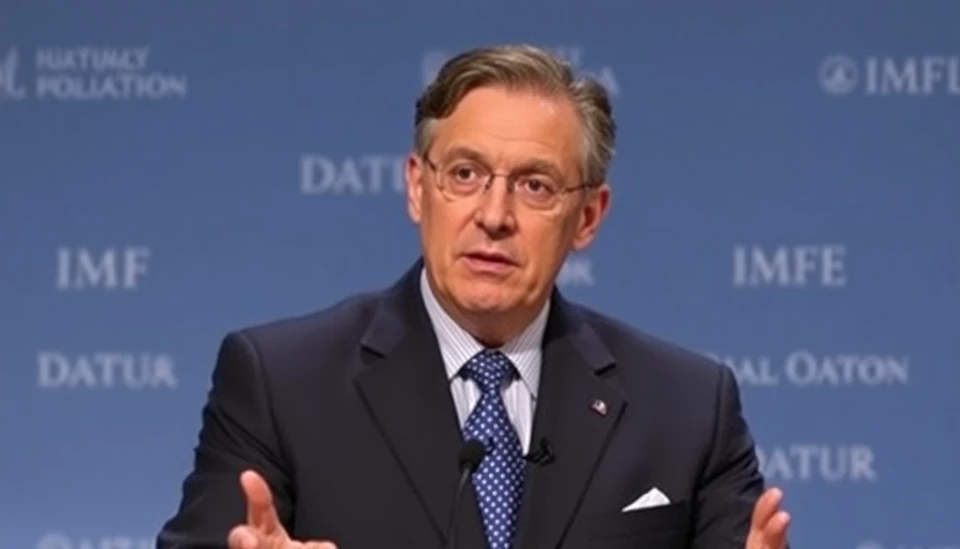
The International Monetary Fund (IMF) has issued a stark warning concerning the United Kingdom's economic trajectory, underscoring the urgent need for the new Chancellor of the Exchequer, Rachel Reeves, to stabilize the nation's debt situation. The IMF's concerns come amid an increasing likelihood that rising interest rates could lead to significant backlash from market forces if not addressed promptly.
Reeves, who recently assumed her position, is now tasked with navigating an intricate financial landscape marked by heightened inflation and stagnating economic growth. The IMF described the UK’s economic outlook as "challenging" and emphasized that external shocks and high levels of government borrowing could exacerbate existing vulnerabilities. Unless Reeves embraces measures that build market confidence, the UK risks facing a scenario where borrowing costs could spike, further crippling public finances.
In its latest report, the IMF underscored that while the UK economy demonstrated resilience post-pandemic, recent global economic headwinds threaten to destabilize that progress. The organization particularly highlighted the need for a comprehensive approach to debt management that considers the delicate balance between promoting growth and maintaining fiscal sustainability.
The Chancellor's plans are likely to be thoroughly scrutinized as government attempts to rejuvenate growth and introduce fiscal reforms coincide with a volatile economic environment. The IMF recommends that Reeves materialize measures aimed at enhancing transparency and predictability regarding fiscal policies, which are essential for regaining investor confidence. A proactive strategy could include capping spending and reassessing long-term fiscal goals to delineate a clear path toward debt stabilization.
Market analysts have reacted diversely to the IMF’s assessment, with some expressing cautious optimism about Reeves' capacity to implement necessary reforms, while others harbor skepticism given the UK’s historical challenges in maintaining a robust fiscal framework. Observers note that the Chancellor's decisions could heavily influence market sentiment in the coming months, with the potential to either restore confidence or further shake foundations, leading to increased volatility in financial markets.
As the political landscape evolves, the importance of cohesive economic policymaking has never been more paramount. The IMF’s alert serves as a reminder that without decisive action, the benefits derived from past fiscal measures may be eclipsed by emerging challenges. The upcoming months will be critical for Reeves as she seeks to forge a path forward that satisfies both the needs of the economy and the expectations of investors.
In conclusion, Rachel Reeves stands at a pivotal crossroads with significant implications for the UK economy and its global standing. The recommendations from the IMF reflect a consensus that prudent fiscal management is essential for navigating the complexities of the current economic landscape. Stakeholders are keenly awaiting her response and strategy to ensure the country's fiscal health remains intact.
#IMF #RachelReeves #UKEconomy #DebtStabilization #MarketConfidence #FiscalPolicy #EconomicChallenges
Author: Laura Mitchell




